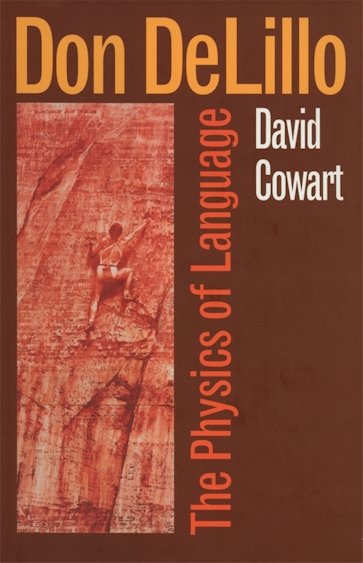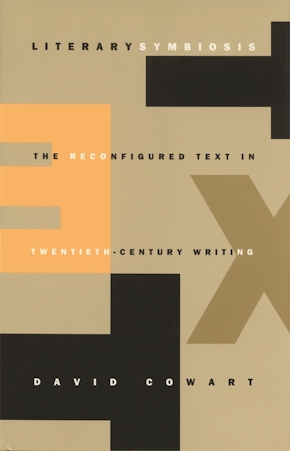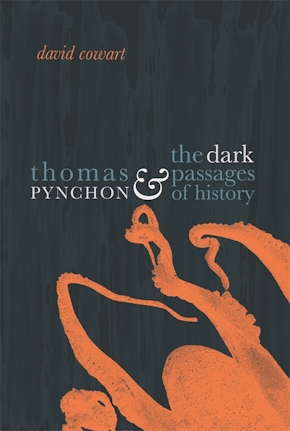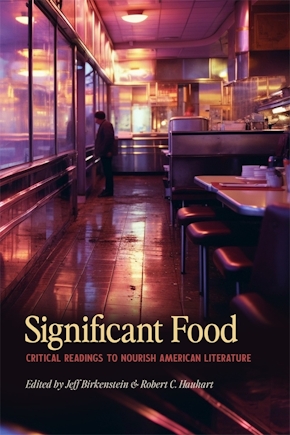Don DeLillo
The Physics of Language
Title Details
Pages: 288
Trim size: 6.000in x 9.000in
Formats
Paperback
Pub Date: 10/13/2003
ISBN: 9-780-8203-2581-1
List Price: $34.95
Related Subjects
Don DeLillo
The Physics of Language
Skip to
- Description
- Reviews
- Awards
Don DeLillo, author of twelve novels and winner of the National Book Award, the PEN/Faulkner Award, the William Dean Howells Medal, and the Jerusalem Prize, has begun to rival Thomas Pynchon as the definitive postmodern novelist. Always thought-provoking and occasionally controversial, DeLillo has become the voice of the bimillennial moment.
Charting DeLillo's emergence as a contemporary novelist of major stature, David Cowart discusses each of DeLillo's twelve novels, including his most recent work, The Body Artist (2001). Rejecting the idea that DeLillo lacks affinities across the cultural spectrum, Cowart argues that DeLillo's work invites comparison with that of wide range of antecedents, including Dunbar, Whitman, Wittgenstein, Heidegger, Freud, Lacan, Derrida, Hemingway, Joyce, Rilke, and Eliot. At the same time, Cowart explores the ways in which DeLillo's art anticipates, parallels, and contests ideas that have become the common currency of poststructuralist theory. The major site of DeLillo's engagement with postmodernism, Cowart argues, is language, which DeLillo represents as more mysterious—numinous even—than current theory allows. For DeLillo, language remains what Cowart calls "the ground of all making."
Don DeLillo: The Physics of Language is a provocative investigation of the most compelling issues of contemporary fiction.
Cowart has made a career of offering incisive, elegant, and revelatory interpretations of contemporary literature. . . . Individually, the readings here open up the novels in new and valuable ways. Taken together, they position DeLillo in an adversarial relationship with the postmodern, resisting and trying to transcend the depthlessness usually associated with it. Finally, they serve as models of learned, careful, imaginative literary analysis. This book takes an important place in the growing field of DeLillo studies.
—Review of Contemporary Fiction
Cowart writes with the confidence of a scholar and the energy of an interested reader while presenting a detailed, well-informed guide through the labyrinth of an intriguing and important contemporary writer.
—Robert Kiely
Provides an evenhanded treatment of the ambiguous dialect of linguistic surface and depth in three clusters of DeLillo novels.
—Studies in the Novel
For Cowart, DeLillo is currently displacing Pynchon as the postmodern novelist of primary significance. Cowart's impressive study of DeLillo's thirteen novels focuses on language, specifically the 'linguistic turn' in contemporary critical theory and literary studies. Comparing DeLillo's postmodern stylistic derangements to the philosophical claims made by Benjamin, Lacan, Derrida, and company, Cowart is not arguing influence but rather developing parallels between the claims of these theorists and DeLillo's novelistic practices. However, Cowart's main thesis is that DeLillo resists postmodernism, albeit from within rather than without: while demonstrating that DeLillo's 'fictions paradoxically provide strong evidence that theory really is the codification of contemporary conditions of knowing,' the most engaging sections of this volume insist that 'to transcribe this social and psychological reality is not to endorse it.'
—Choice
Cowart's readings of the novels are uniformly superb.
—MODERNISM / Modernity
Richly demonstrates [that] DeLillo's language is also and at least an all-too-human sign system, inescapably part of the 'fallen wonder of the world.'
—Contemporary Literature
Winner
SAMLA Studies Book Award, South Atlantic Modern Language Association



